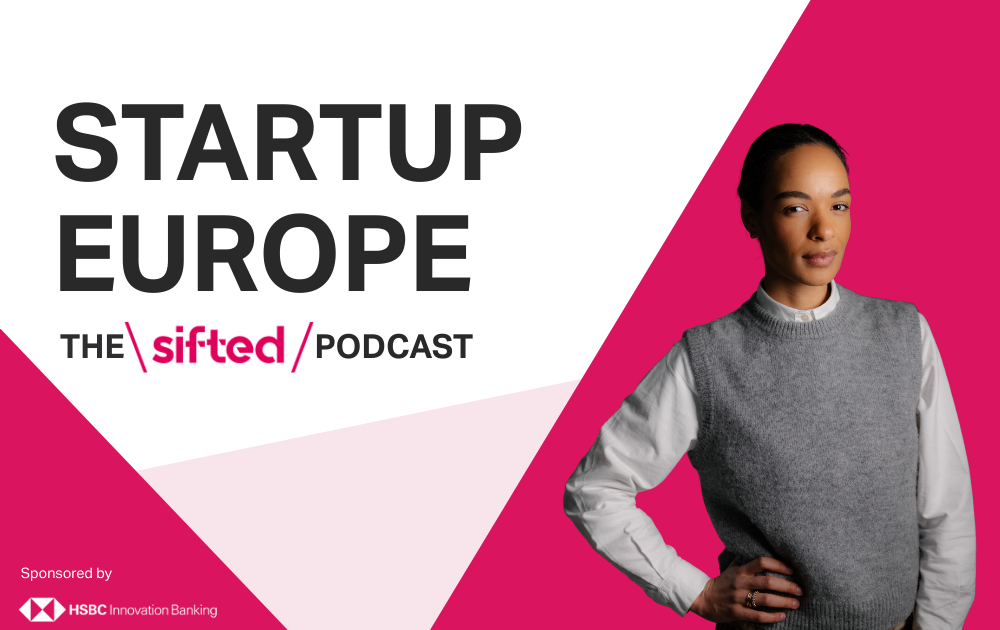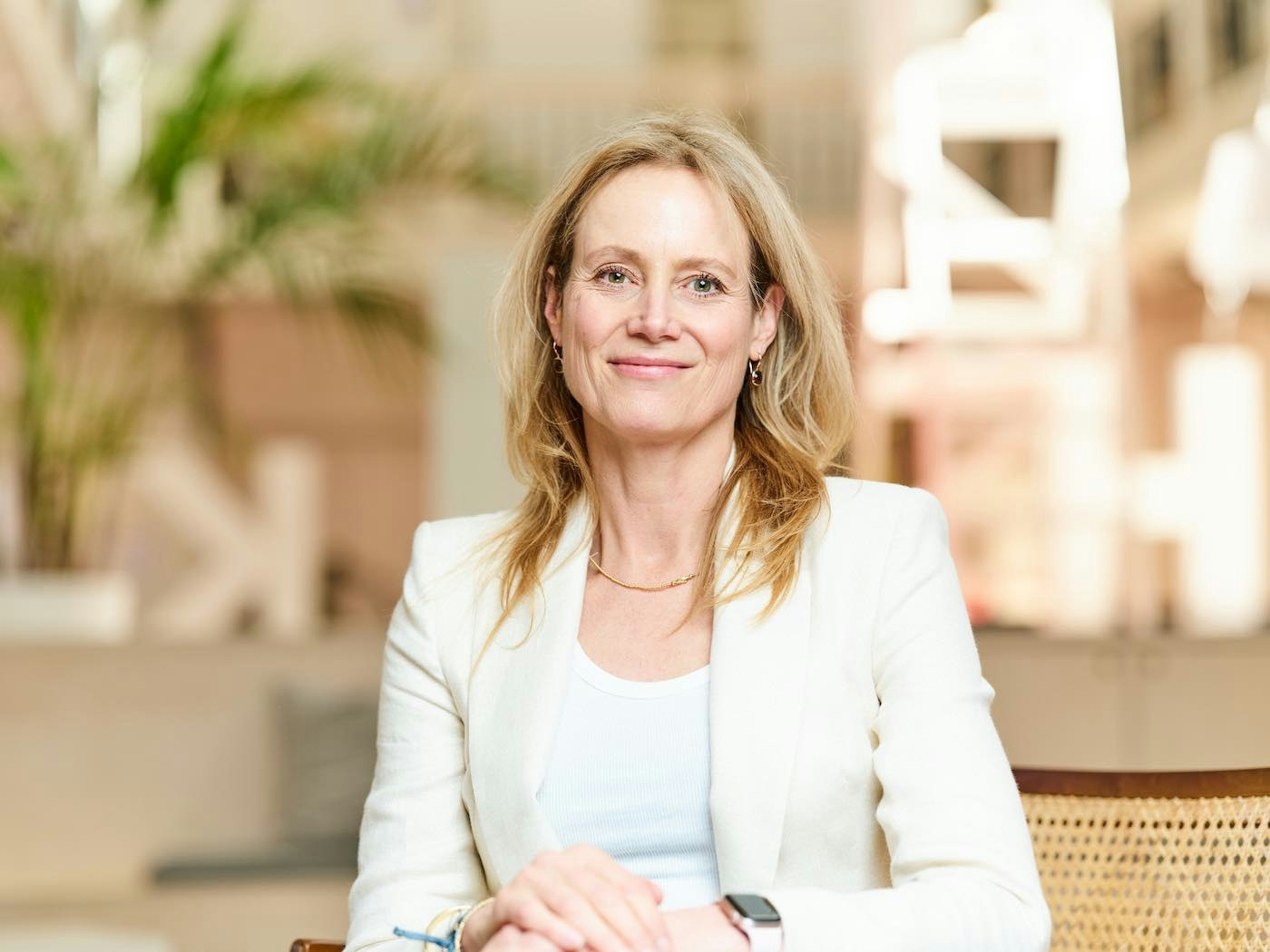2025 is a great time to be an early-stage founder, says Sequoia partner George Robson — as long as you’re willing to really go for it.
“Europe, particularly at the seed stage, is an incredible place,” he told an audience at the inaugural SXSW in London this week. “But the rate of change of companies is the greatest that it's ever been.”
He says: “In the era of AI is how people are building more with smaller teams in less time. [...] The pressure on you as a founder is even higher, because you have to undergo a greater rate of transformation than you would have done in the same business 10 years ago.”
The pressure’s also on investors — and Robson says he’s increasingly spending time with ‘pre-founders’; those yet to even launch a business.
Where does he think Europe’s next big businesses will be built? Where’s he scouting for top talent? And what opportunities does he see in defence tech?
Find out in the following lightly edited version of Robson’s conversation on stage with Sifted editor Amy Lewin.
Where do you think some amazing businesses can be built in Europe?
Before I joined Sequoia, I was at Revolut. Revolut started as a pure play, traditional finance company, and then went pretty heavily into crypto — and I'm sure will go further in the future. The thing that catalysed a business like Revolut — and Monzo and Starling — was basically regulatory change that allowed these companies to exist as sort of lightly regulated banks or something called e-money institutions, and created this incredible wave of fintech that we’ve all enjoyed.
Earlier this year came into ratification something called MiCA, which effectively regulates how regulated financial institutions can hold digital assets. This is how cryptocurrencies can become much more mainstream for a set of very institutional use cases.
And personally, as someone who spends a lot of time thinking about these settings, I think this is the most seminal piece of regulation that hit Europe in the last eight plus years. I'm incredibly excited to see what we can do there, and particularly in a world where Europe is quite well positioned geopolitically — a bunch of different jurisdictions that all need to clear huge amounts of volumes going through our part of the world — I think it's a very nice moment in time.
One of the biggest themes of the moment is defence. Governments are putting more and more money towards it, and a lot of it will eventually trickle down to tech startups. What are the dynamics there that make it an interesting area to invest in, particularly in Europe?
The unfortunate backdrop has created a need for unbelievable expansion in spending across a bunch of different governments. I think what you've seen over the last few weeks and months is that Europe has really come together and made a bunch of increased spending commitments, which is quite a unique moment in time if you’re thinking of selling into a defence prime in the future, because you know the budgets will exist.
The question is, what will that money be spent on? So actually, when you think about investing in a defence founder versus other sectors, if we invest in a B2B SaaS company, it really matters what the vision for the initial product is, what the wedge is going to be, how that unlocks a customer relationship, how you would expand that customer relationship over time…
Defence is actually quite different. Really we just need to believe this person has basically unfair access to information to understand, what are the budgets that could be created, ideally as early as possible, so they can position their company to apply for effectively that tender or that RFP [request for proposal] to have the highest probability of success, and then leverage that to do the same thing again and again and again as you unlock programme of records over time.
So really, it's about access and then being able to mobilise production. And the interesting thing about that is the sand is constantly shifting in Europe, but the market opportunity is incredibly clear. We're all very excited about it. We're actively investing in it. And I think that this opportunity to sort of buy European or buy locally, in the defence world, is a big advantage for European companies.
What we need is for governments to start actually buying and placing large contracts with these [defence] companies
The thing I would emphasise is, at a government level, there's a lot of emphasis on matching funds or trying to contribute alongside investors. I don't think that's the problem. I think investors are very happy and comfortable and willing to commit capital into businesses. Really, what we need is for governments to start actually buying and placing large contracts with these companies so we can move the world forward.
It's basically about a procurement process and the procurement time frame, because understandably, you're selling pieces of equipment that can be used in a range of different contexts. It's important that you get it right. It's important that they understand who they're buying from.
All those things are obvious. But at the end of the day, it's not so much about someone investing in incremental, $5m or $10m in the company. It's about them being able to place contracts worth hundreds of millions of dollars, so the business can start to scale manufacturing and invest in their team and potentially raise more capital down the line. It's the commitment to spend, rather than the commitment to invest, that will really drive the company's worth.
Dubai is somewhere that keeps coming up more and more, and I still can't figure out whether this is just investors posting about it on LinkedIn, or a real trend … but I do hear increasingly about founders choosing to move there, whether for tax reasons or otherwise, and investors choosing to raise money or spend more time there. Are we going to see more people do that, or is that social media hype?
It depends on what you’re building. I agree it's increasingly real; as in, we definitely see it versus the baseline. If you think about the region as a whole, the population is large, but not massive. And the addressable market for most domestically focused companies, again, is large, typically not massive. So I don't think you'll see an explosion of localised B2B SaaS companies, versus buying from Europe or buying from the US.
Regulated businesses are a little bit different, because the UAE in particular has been pretty aggressive around regulating fintech and crypto. It has a pretty nice advantage, because it can serve quite easily into China, into Southeast Asia, obviously, to Europe, into the US, so it's in quite a nice position to be able to go after that.
The question for a long time was, does the depth of talent exist to be able to support very large companies? I think what might shift that is two things. One is pretty large hubs for very large western successful companies: Deel has a big base there; Revolut has a pretty good platform there. But the second thing, which is a bit less obvious, is a pretty big displacement coming out of Russia after the war in Ukraine.
And that combines with people that are quite business minded, people who are typically very technical, and you have all of those people in one jurisdiction now, which is why I think you've seen that increased company formation.
All these AI companies that are growing incredibly fast, with very small teams: how are you measuring them against one another? How do you decide which horses to back in the race?
It's the same properties, but I'd say the rate of change has increased. We always care when we think about seed and pre-seed investments around this notion of velocity. Not just velocity of revenue metrics or usage.
It's more about, instinctively, how does the team take in new information, update their strategy and formulate a new plan? And I would argue, with these rates of technological change, that's the critical skill. The irony is, we see companies all the time where the business has exploded; it might have gone from zero to five million in six months. It's quite normal to see companies with those kinds of metrics today in certain categories.
With these rates of technological change, velocity is the critical skill
But the irony is, you can have two businesses, one that's done exactly that; one that went zero to two, but the zero to two founder has thought very carefully about building a product strategy, really understands who is using their product, why they’re using the product, which bit of that they want to invest more in… and the zero to five founder got lucky, right?
And sort of stumbled into product market fit and may not know how to take the business to the next phase. So I say it's actually the same characteristics. It's just the pressure on founders to undergo that transformation is even greater, because it happens in record time.
At Sequoia, you’re looking at companies earlier and earlier, and at founders, sometimes before they’ve got a business. Why is that? Is it because the rate of growth has sped up more than ever?
It’s partly that, it’s that in Europe we have the talent pool — so at that level, it's definitely worth the investment. You can work with these incredible people. They don't even necessarily have a refined idea. They just have a notion of a company.
I think the reason that we're excited at that stage is because it's a pretty high trust moment for you to engage with effectively, a ‘pre-founder’. And we're doing it because we get perspective — we work as one team across the US and Europe, so we see them side by side. So if you're a founder leaving a Revolut or a Palantir, whatever it might be, in London, you don't necessarily have full awareness of what's happening in the States or in Israel or wherever it might be, but we can share that perspective.
But the end goal, generally, is to help these founders find a market that deserves them; that deserves their level of ambition.
Where are some surprising talent hubs?
We have some pretty interesting manufacturing hubs in and around London. I’m always banging on about Milton Keynes — you have eight of the top 10 Formula One teams in the world; an incredible density of engineering talent… I'm very excited to see people coming out of those now relatively large organisations and holding companies.



